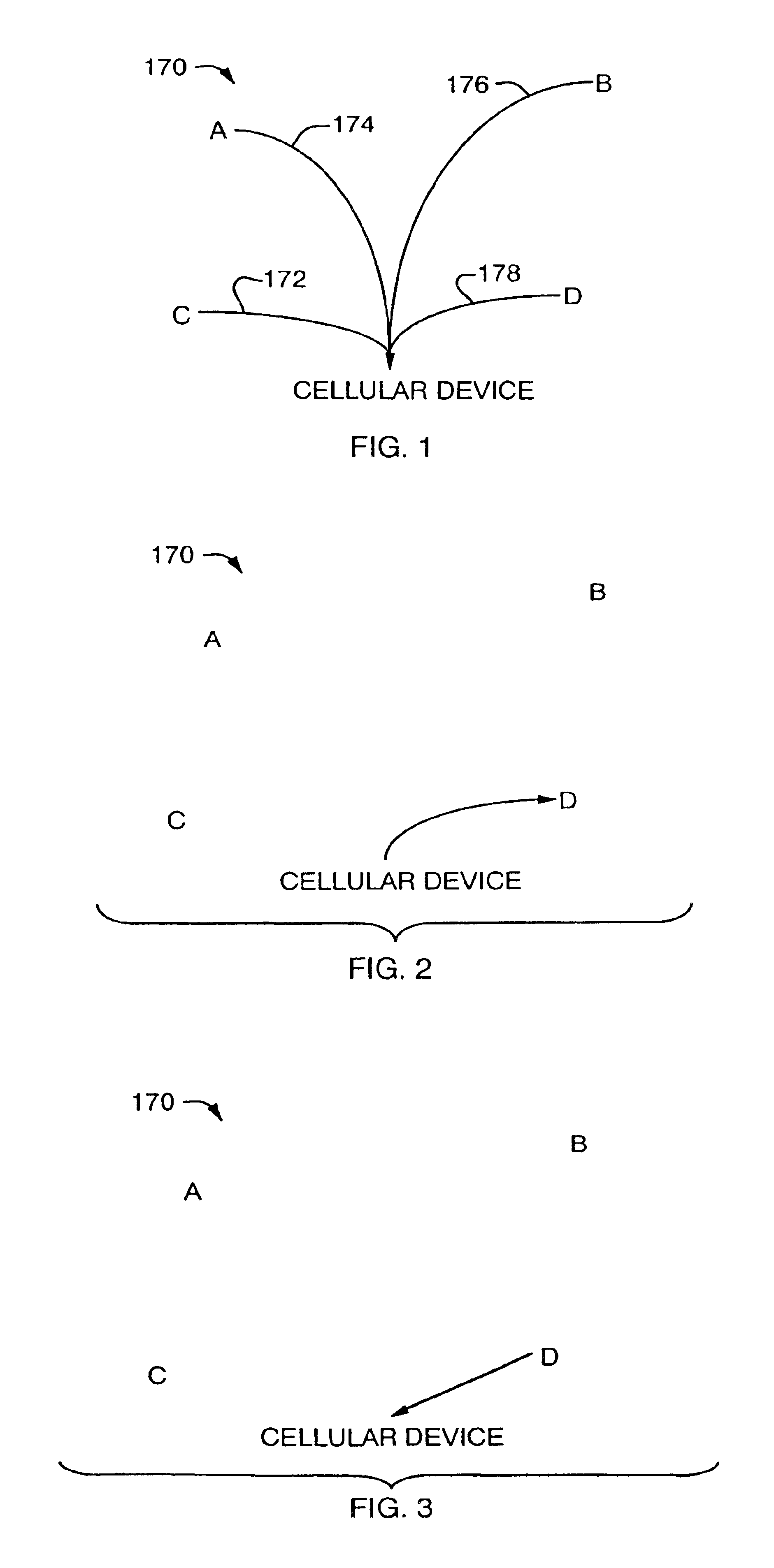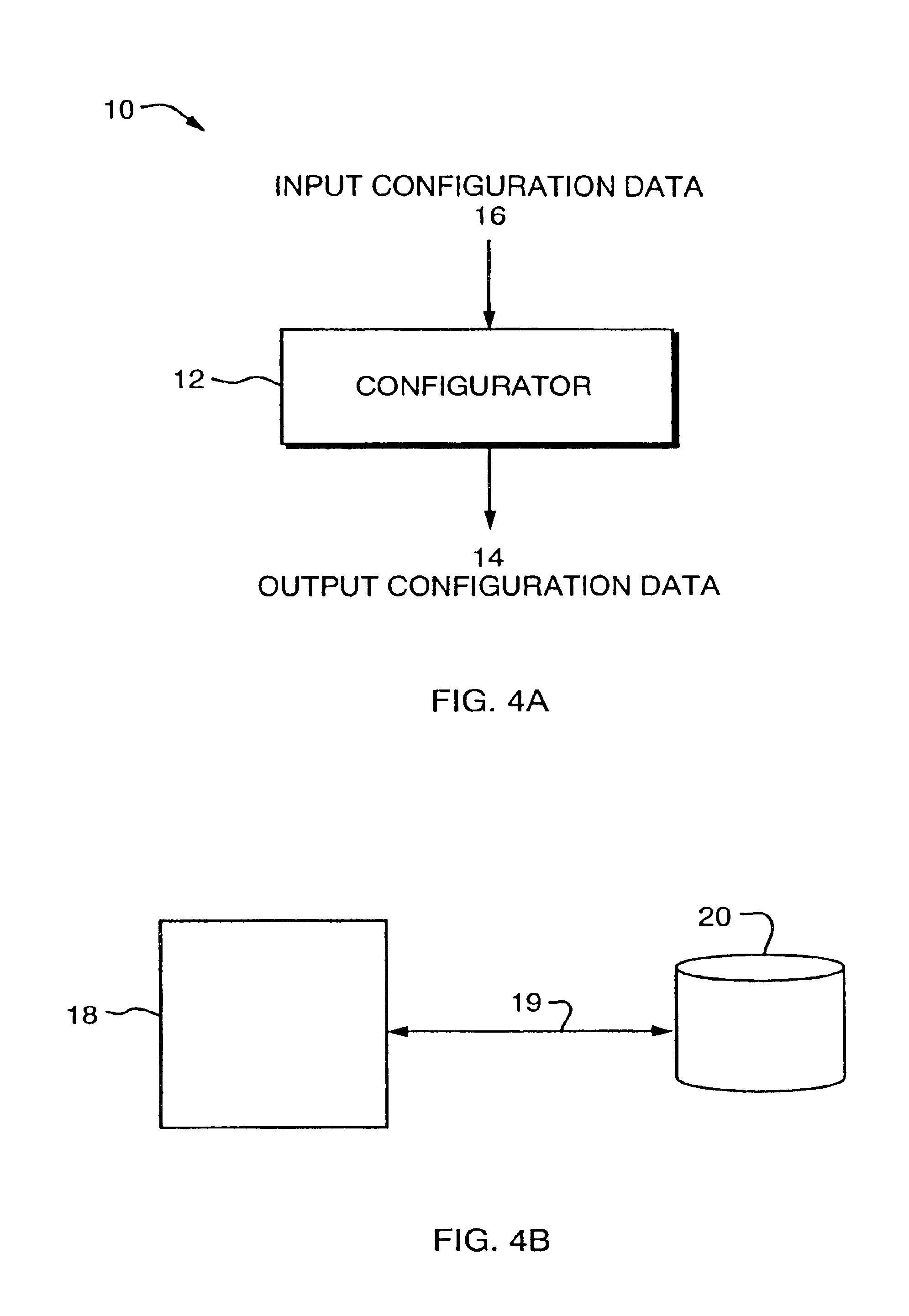Methods and techniques in channel assignment in a cellular network
a technology of cellular network and channel assignment, applied in the field of cell network, can solve the problems of not being assigned the same frequency, affecting the operation of the system, and affecting the operation of the network,
- Summary
- Abstract
- Description
- Claims
- Application Information
AI Technical Summary
Problems solved by technology
Method used
Image
Examples
first embodiment
At step 926, pairwise C / I values are determined. In one embodiment, the pairwise C / I values are a submatrix or subset of the previously described C / I matrix. This submatrix may be represented by a square matrix having a dimension that is equal to or less than the existing C / I matrix previously described. This submatrix includes those pairwise C / I values having subscripts of sectors i,j corresponding to sectors identified in step 924. In other words, for every pair of sectors i and j identified in step 924, the pairwise C / I values corresponding to subscripts i,j and j,i are included in the submatrix. If this first embodiment of the pairwise C / I values is used, the modified cochannel and adjacent channel total C / I formulas 900 and 902 may be included and used in performing color code assignments in step 930, which is described in following paragraphs.
second embodiment
step 926 determines pairwise C / I values by adjusting a portion of the pairwise C / I values as may be included in the pairwise C / I matrix. In particular, the pairwise C / I values for those adjacent channel sectors as identified in step 924 are adjusted. The C / I values correspond to those values associated with the second subset of sectors identified in step 924. These C / I values are adjusted by a predetermined value. In one instance this predetermined value may be the difference between the co-channel and adjacent channel thresholds that may serve as QOS inputs in a channel assignment process. If this second embodiment of the pairwise C / I values is used, the channel assignment technique which assigns the color codes to the sectors performs such that the comparison of the total C / I adjacent channel threshold test always succeeds. Additionally, the similar total co-channel C / I threshold test takes into account the co and adjacent channel C / I by using the adjusted C / I values just describe...
PUM
 Login to View More
Login to View More Abstract
Description
Claims
Application Information
 Login to View More
Login to View More - R&D
- Intellectual Property
- Life Sciences
- Materials
- Tech Scout
- Unparalleled Data Quality
- Higher Quality Content
- 60% Fewer Hallucinations
Browse by: Latest US Patents, China's latest patents, Technical Efficacy Thesaurus, Application Domain, Technology Topic, Popular Technical Reports.
© 2025 PatSnap. All rights reserved.Legal|Privacy policy|Modern Slavery Act Transparency Statement|Sitemap|About US| Contact US: help@patsnap.com



